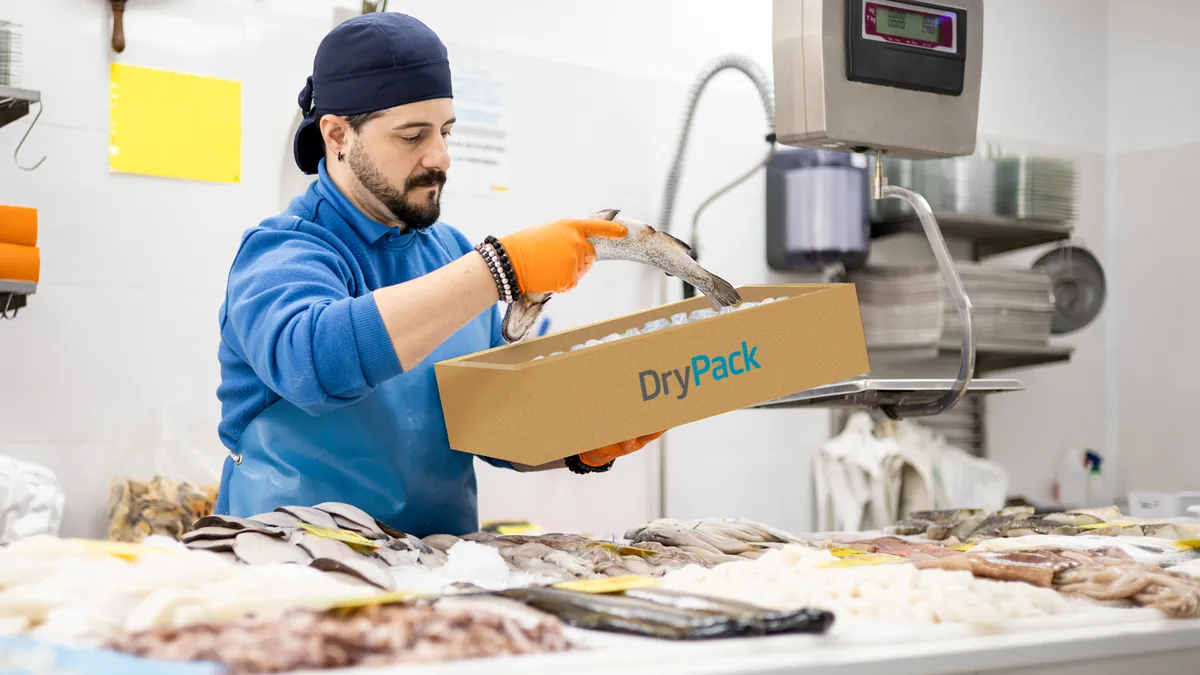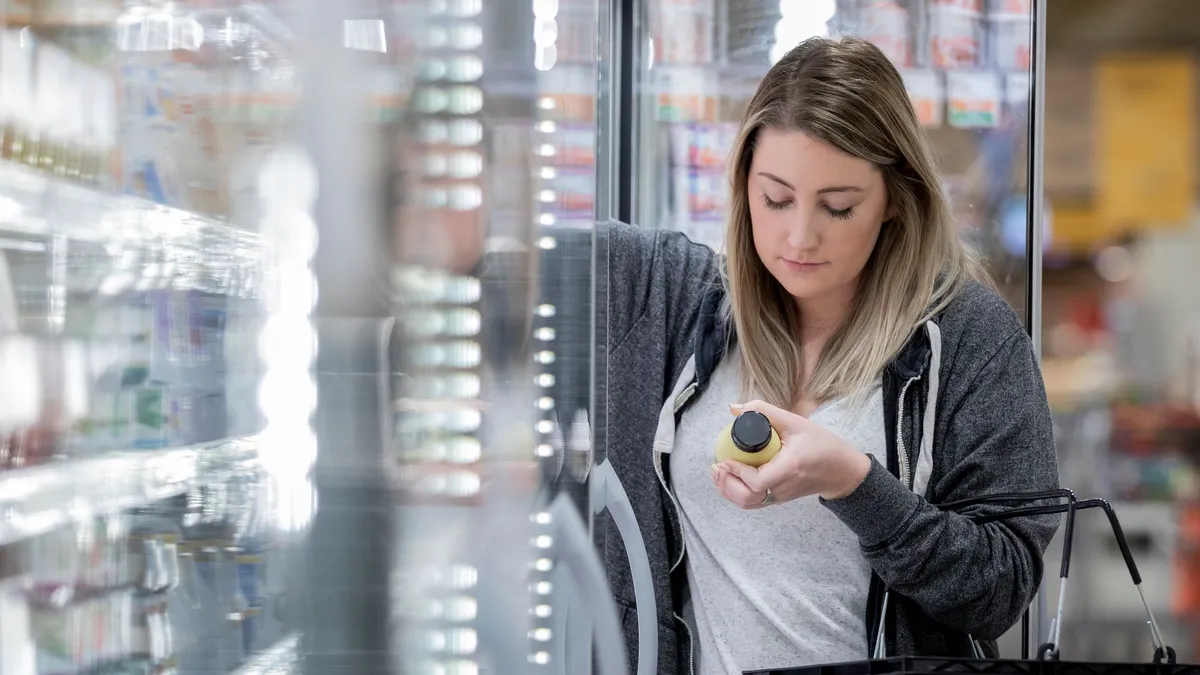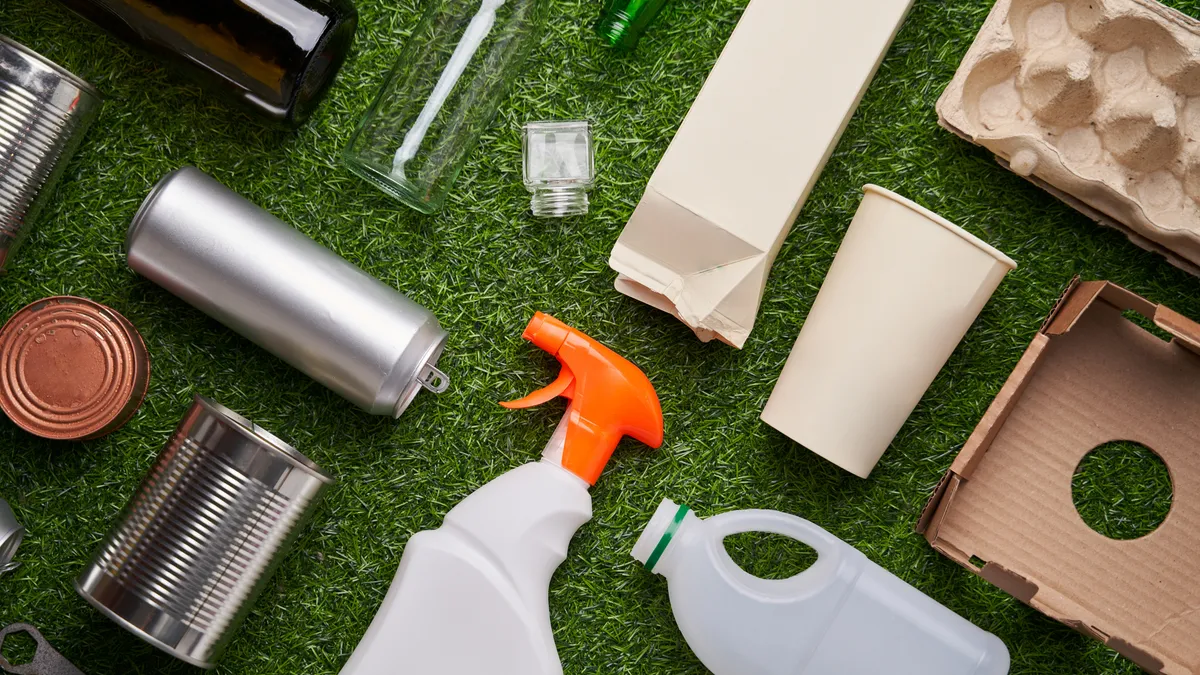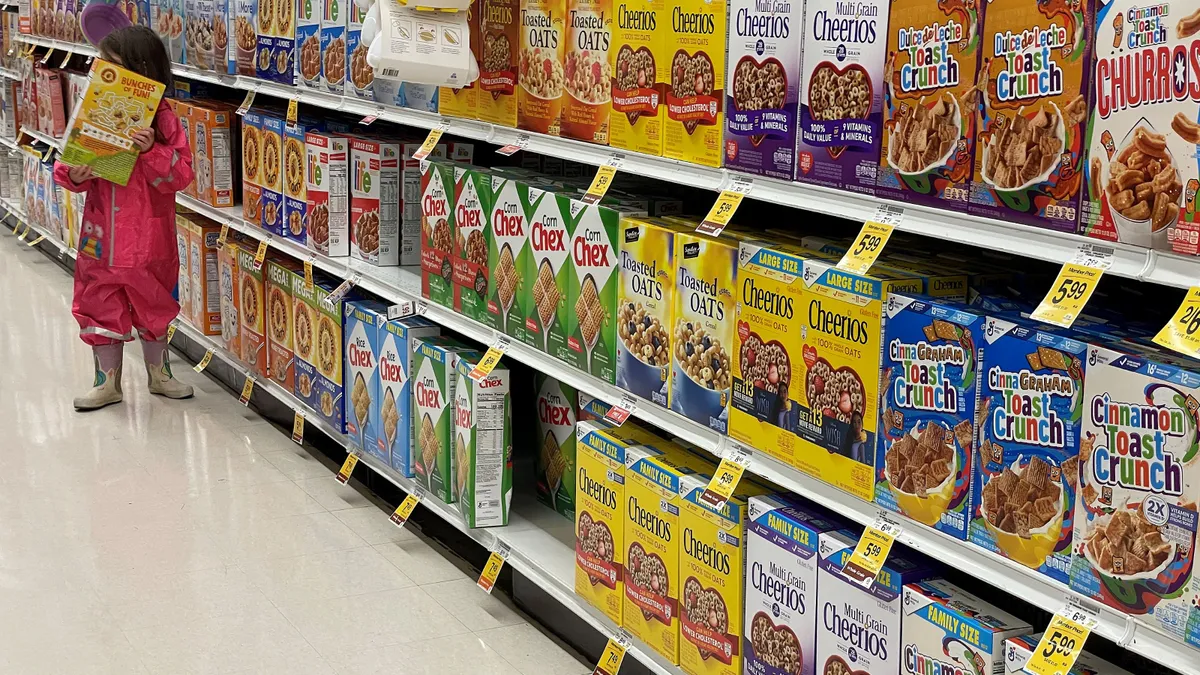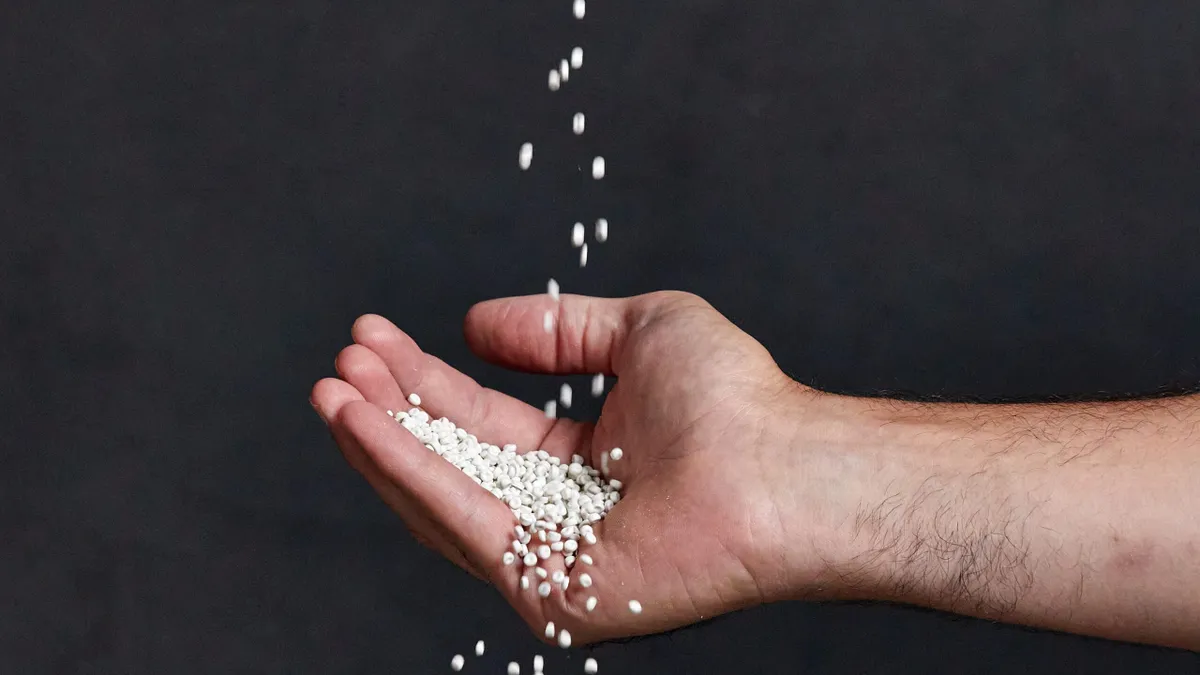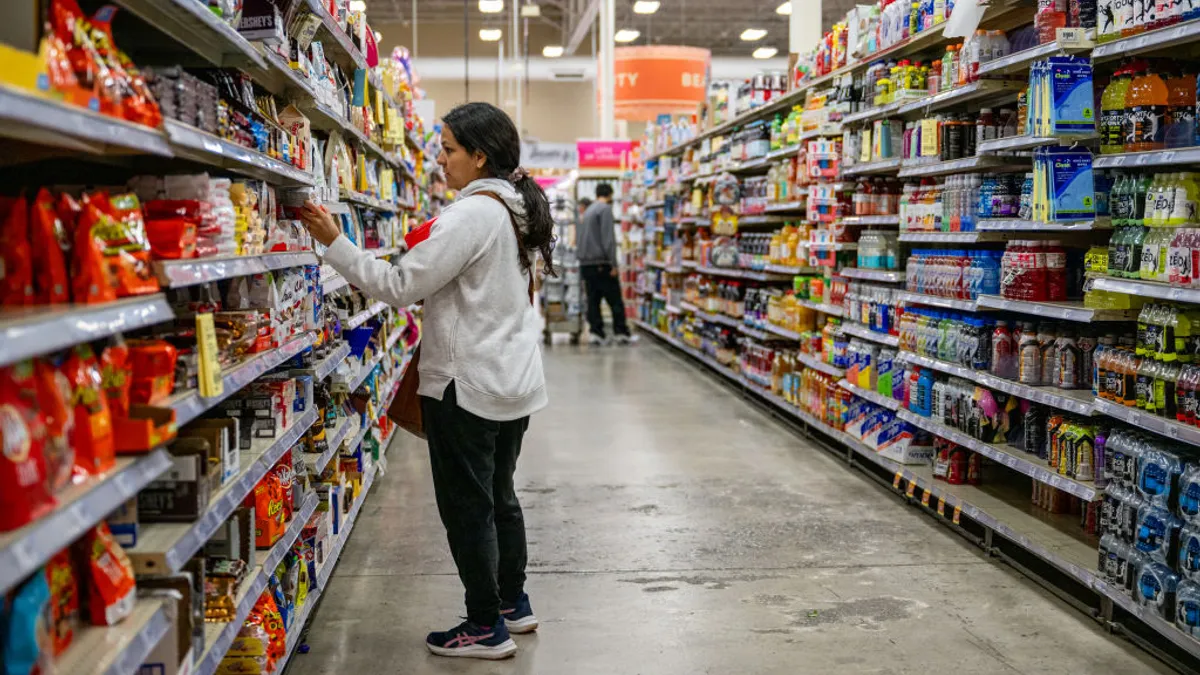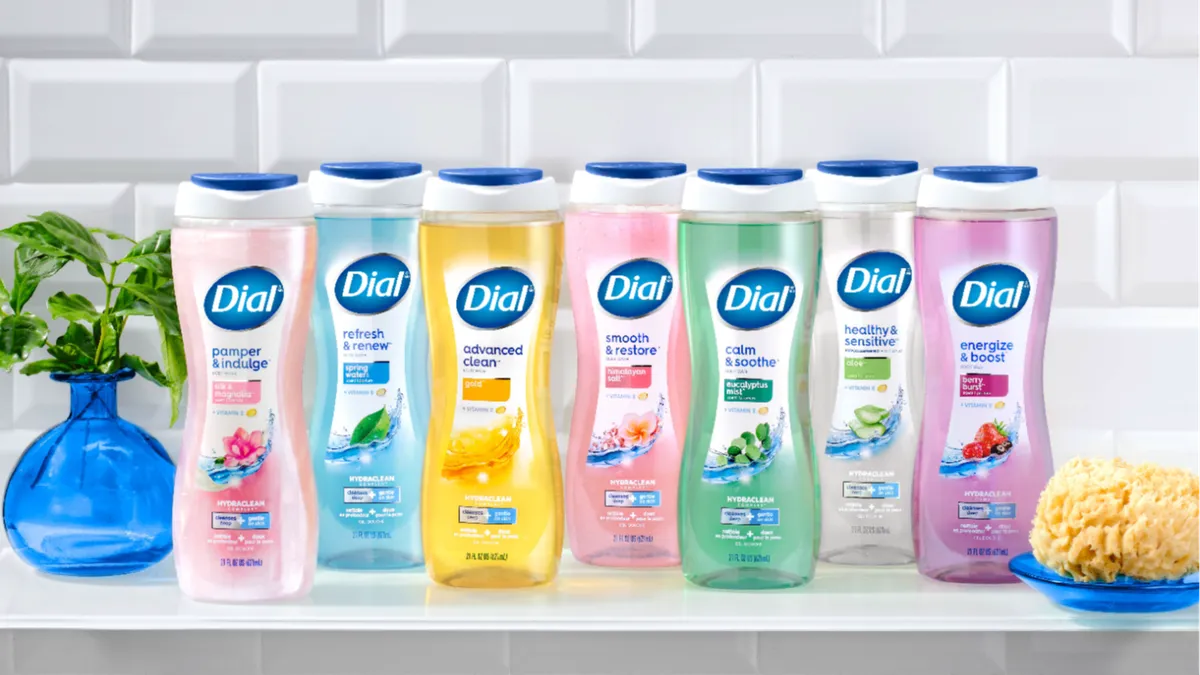Companies constantly innovate with technology and redesign their packaging to get better performance, improve marketability and enhance sustainability. Here’s a look at five recent product launches or redesigns on Packaging Dive’s radar.
Fishing for sustainability
This month, DS Smith released its patented, fiber-based DryPack seafood box in North America as an alternative to EPS foam boxes. The water-resistant boxes are recyclable, designed not to leak and can keep fresh fish below 40 degrees Fahrenheit for more than 40 hours in cold chain operations, the company said in a news release. The boxes incorporate DS Smith’s patented Greencoat technology, which the company calls “a food-safe, moisture-resistant, recyclable coated box solution that has USDA, CFIA, FDA and FBA certifications.”
Because the boxes ship flat, they require 81% less space during shipping than expanded polystyrene boxes, according to DS Smith.
“By shipping empty DryPack seafood boxes flat at a lower price – and moving customers away from non-recyclable EPS boxes and the waste disposal fees those boxes generate – we can give seafood processors an opportunity to increase efficiency and reduce their supply chain costs along with their carbon footprint,” Steven Rose, managing director of packaging for DS Smith North America Packaging and Paper, said in the release.
Cultivating recyclability
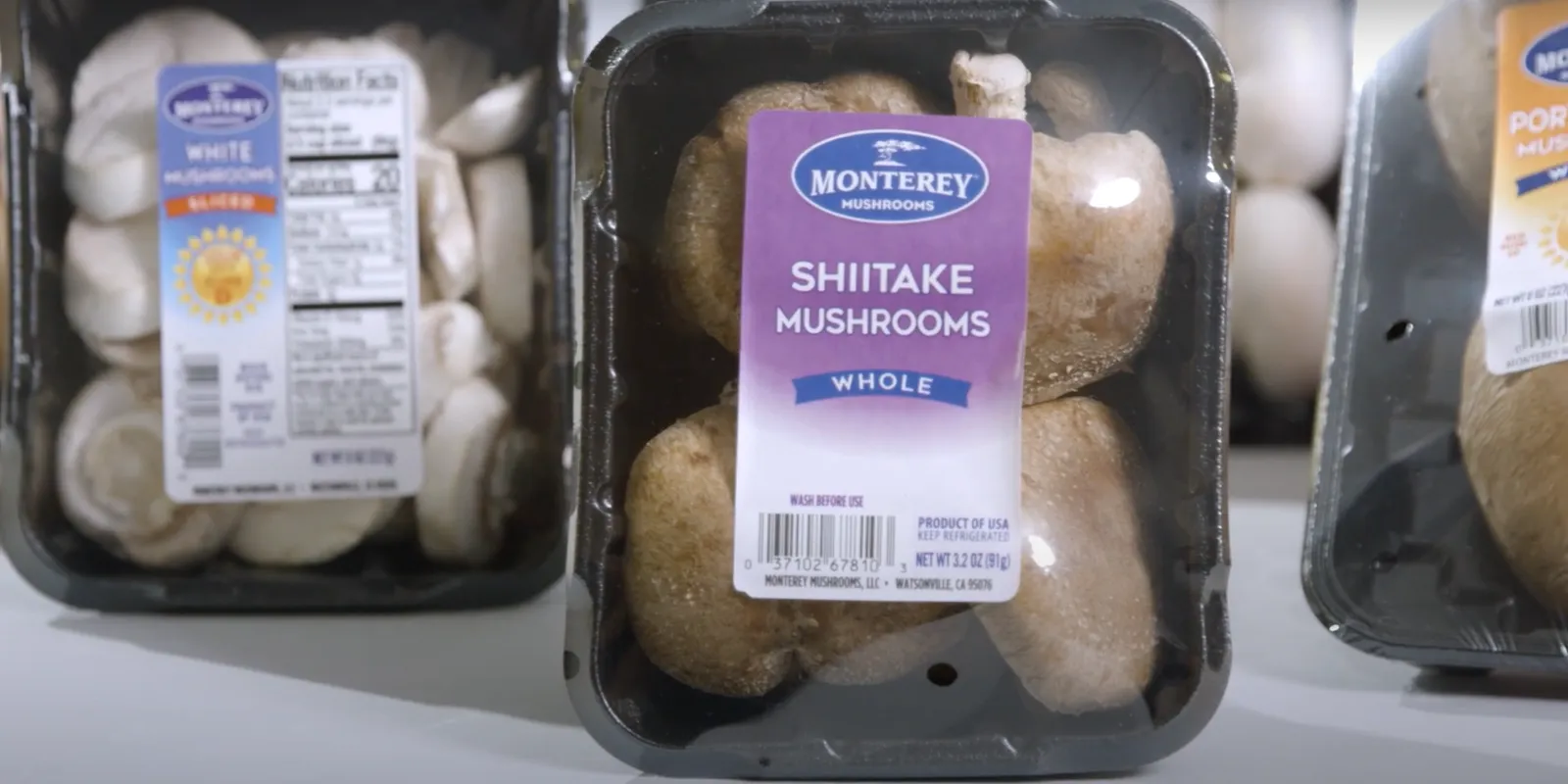
Monterey Mushrooms will begin to incorporate near-infrared sortable material in its 100% postconsumer recycled PET thermoformed till containers to enhance the packaging’s recyclability. Using the NIR-sortable colorant in its tills is an alternative to typical black colorant and aids material sortation, the company said in a news release.
Using rPET for these containers gives new life to mixed-color PET, and the packaging potentially could provide long-term cost advantages, even over clear PET, the company said.
Since the 1980s, “the mushroom industry has been repurposing colored rPET, such as opaque blue, opaque green, and black rPET plastics, to give them a new life. We believe using clear rPET is wasteful and a regressive step for our industry,” said Bruce Knobeloch, vice president of product development and marketing, in the release.
Because the recycled content base material will change, the hue of the new tills will vary among blue, green, purple and black. The containers will roll out this spring.
Recycled content ramp-up
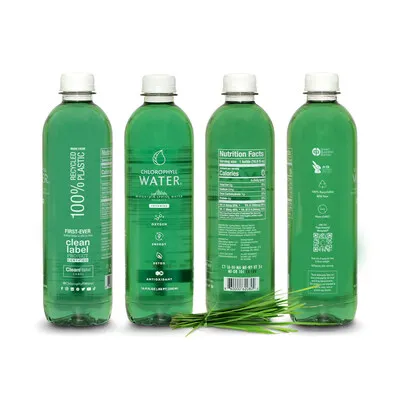
Chlorophyll Water is launching new bottles made from 100% recycled PET. The plastic is recycled in accordance with U.S. FDA and European Food Safety Authority requirements for food-grade recycled material, according to a company news release.
"[I]n utilizing bottles made from 100% recycled plastic, our intention is to make a truly meaningful and lasting environmental impact — addressing the plastic waste challenge, minimizing our use of virgin, fossil-fuel based packaging,” founder Matt Levine said in the release.
To accompany the new bottles, Chlorophyll Water is using Avery Dennison’s CleanFlake label technology, which is designed with a water-based adhesive to separate cleanly from the bottles during a recycling wash cycle. Chlorophyll Water is using these labels to improve the yield of pure PET during recycling.
Flexing its fiber muscle
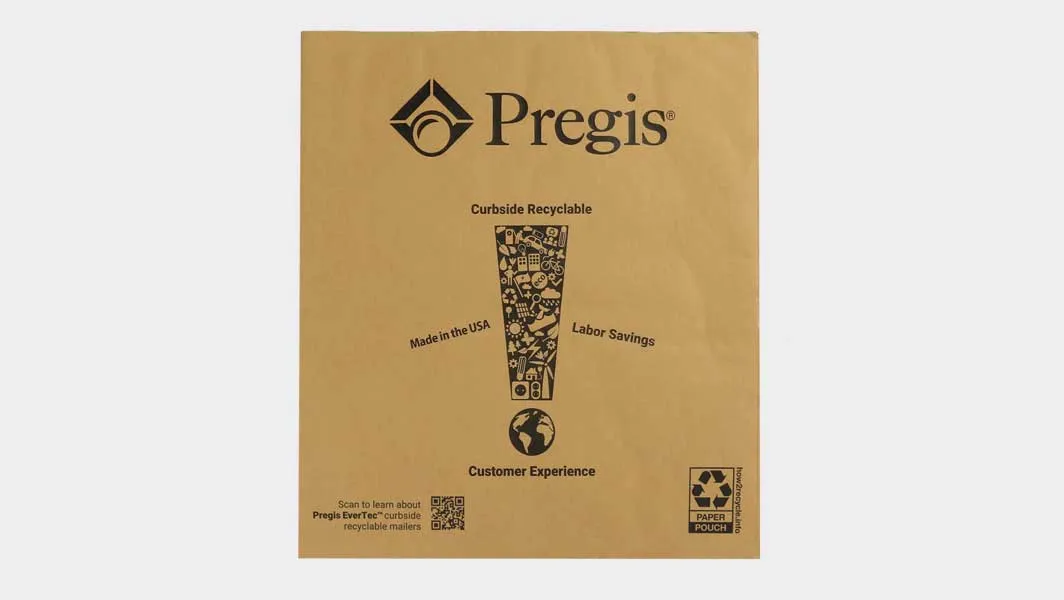
Flexible packaging company Pregis introduced a kraft paper mailer designed for e-commerce called the EverTec Automated Mailer. The company developed the product in response to demand for curbside recyclable, paper-based packaging. The mailers are intended for medium- to high-volume packaging requirements for non-fragile home goods and soft items like clothing, bedding or toys. They’re available in three stock sizes.
The EverTec Automated Mailer currently is debuting in North America and eventually will be available globally.
Combating composting contamination
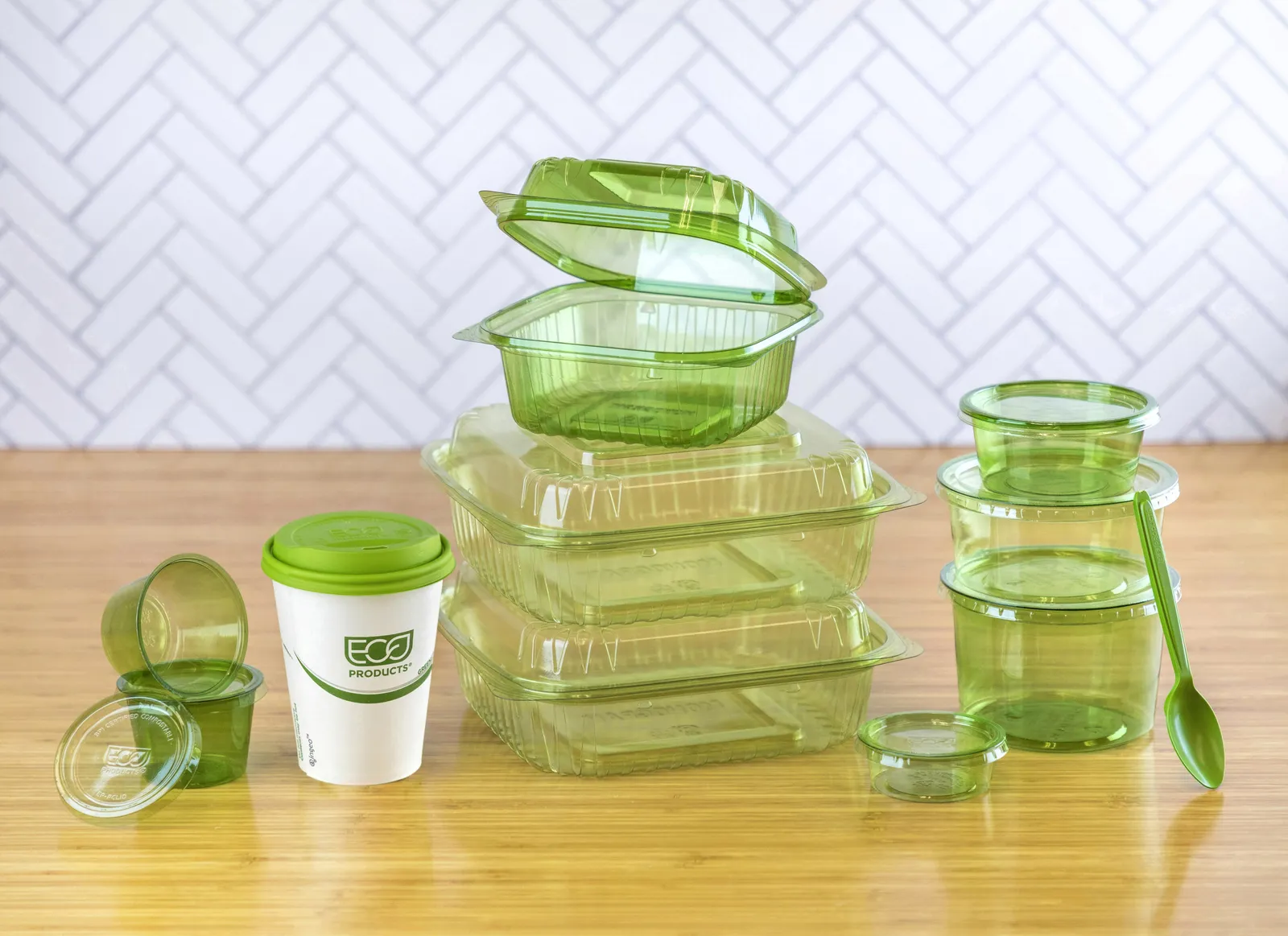
Eco-Products, a Novolex brand, launched Veridian, a line of more than 50 different compostable food service ware items. Eco-Products includes the word “compostable” and green or brown identifying features on the products to help consumers and commercial composters differentiate between these products and non-compostable items.
The company said Veridian products are designed to meet new labeling regulations in Colorado, where the company is based, and Washington that require the use of the word "compostable," a third-party certification mark and the combination of color and design elements that vary by state.
"Consistent on-item labeling is essential to giving foodservice operators, their customers and composters the ability to quickly and easily identify products as compostable," Wendell Simonson, director of marketing, said in a news release.



